Advice from activists: How COVID-19 is changing climate activism for young women
Date:
Originally published at Medium.com/@UN_Women
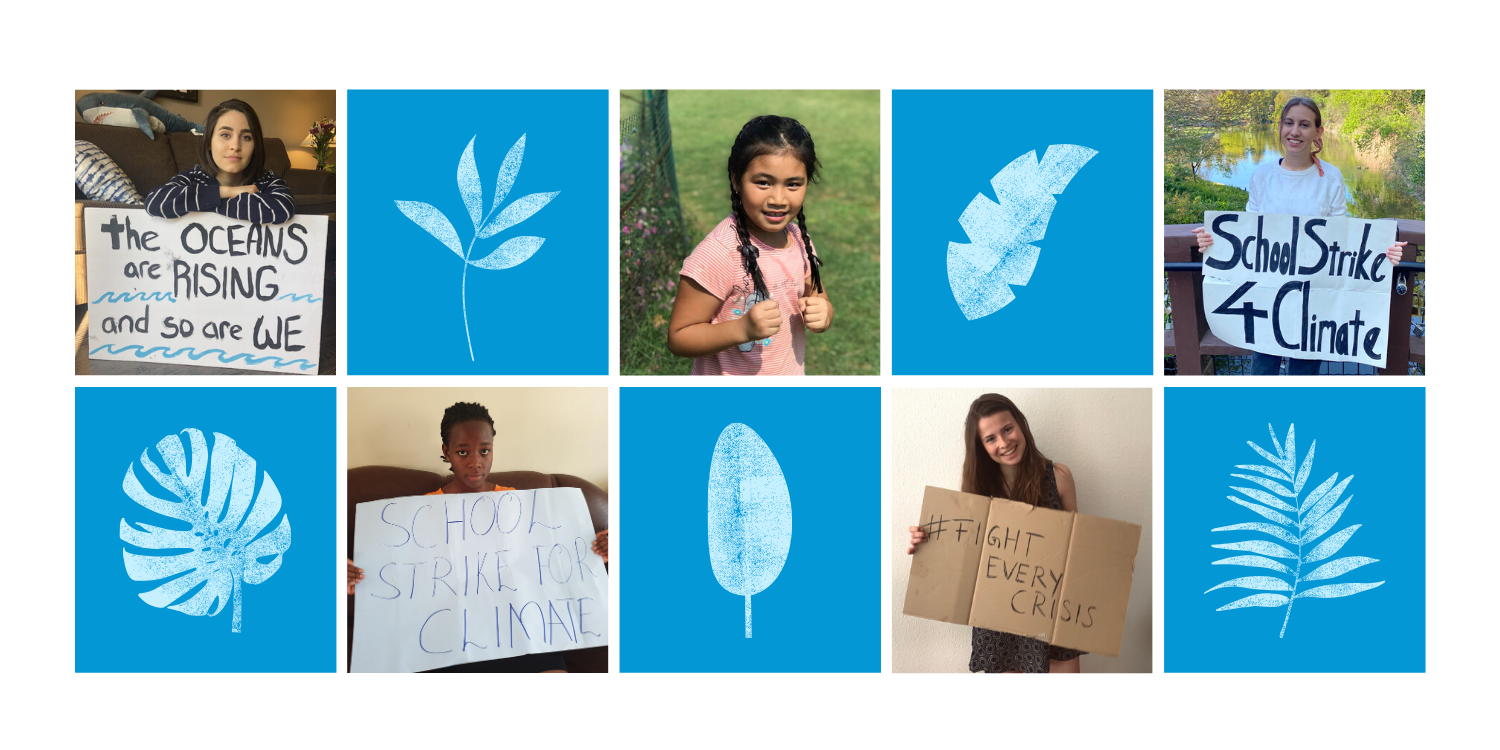
Climate change represents one of the defining issues of this generation. From catastrophic storms and severe droughts to increasing global temperatures and rising sea-levels, the way our planet is changing is not for the better.
It’s on all of us to do our part to stop the harm to our environment, and some of the best and brightest who are leading climate action are young women and girls.
As one-third of the global population is under stay-at-home orders to limit the spread of COVID-19, climate activists are finding new ways to bring attention to their cause and new ways to take action.
This year on Earth Day, 22 April, we asked young women and girls on the front lines of climate activism how all of us can be a part of the movement, from the safety of our own homes, and what we can we learn from how the pandemic is affecting our planet.
Strengthen online communities
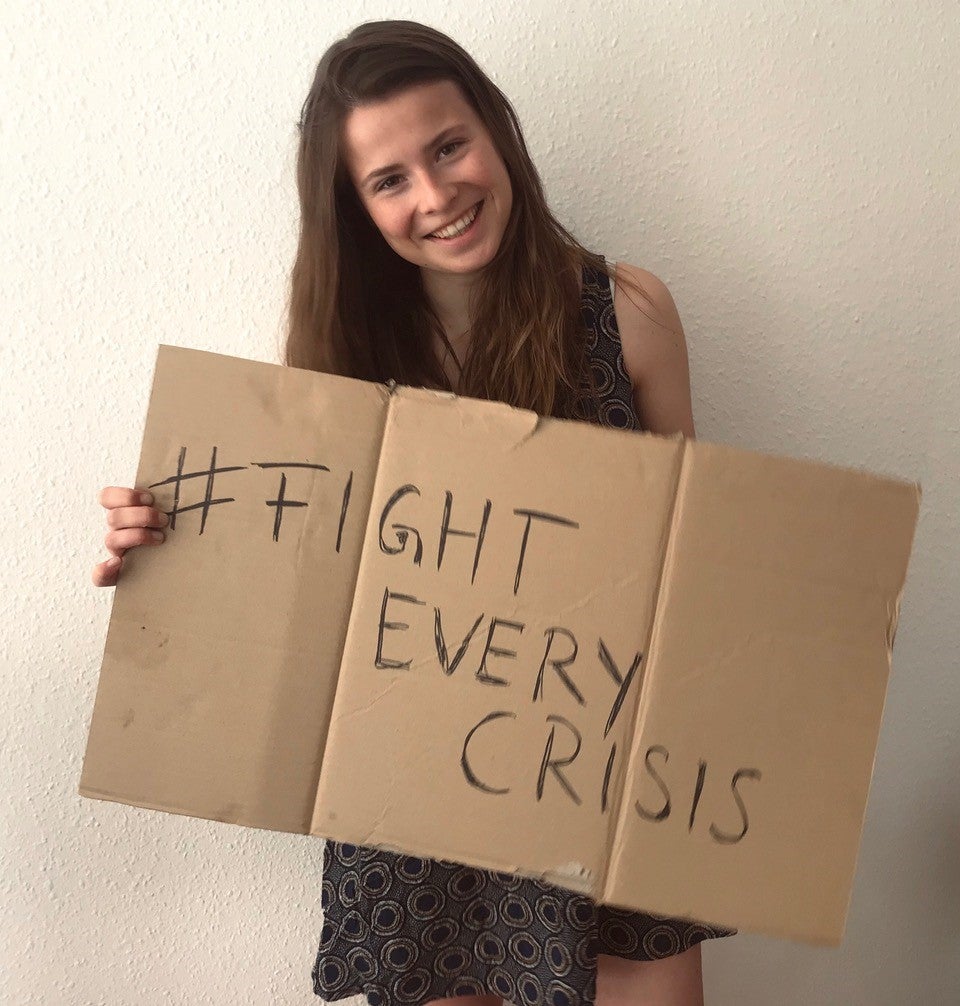
“COVID-19 means no more mass protests on the street and instead organizing digital activism.
Fridays for future has always been a highly digital movement. We started the movement using telephone conference, social media engagement and online mobilizing. So that’s what we do now too.
We call it #ClimateStrikeOnline — moving protests to social media spaces and making voices heard there.
We ask people to post selfies from home showing their protest signs. We organzie mass calls and ask people to drop banners from their windows, write messages on their face masks, join us in tweet storms and mass email actions. There is plenty to explore!
There are a million ways to waste time on social media. But there are just as many ways to make use of its huge potential to reach people everywhere. Go live, talk about what drives you, unbox more politics and less amazon gifts, inspire people to join protests, tweet intelligently.”
Luisa Neubauer, 23, is a climate activist from Berlin, Germany, who works with the global Fridays for Future movement that has inspired climate protests and action around the world. Find Luisa on Twitter at @luisamneubauer.
Learn new habits
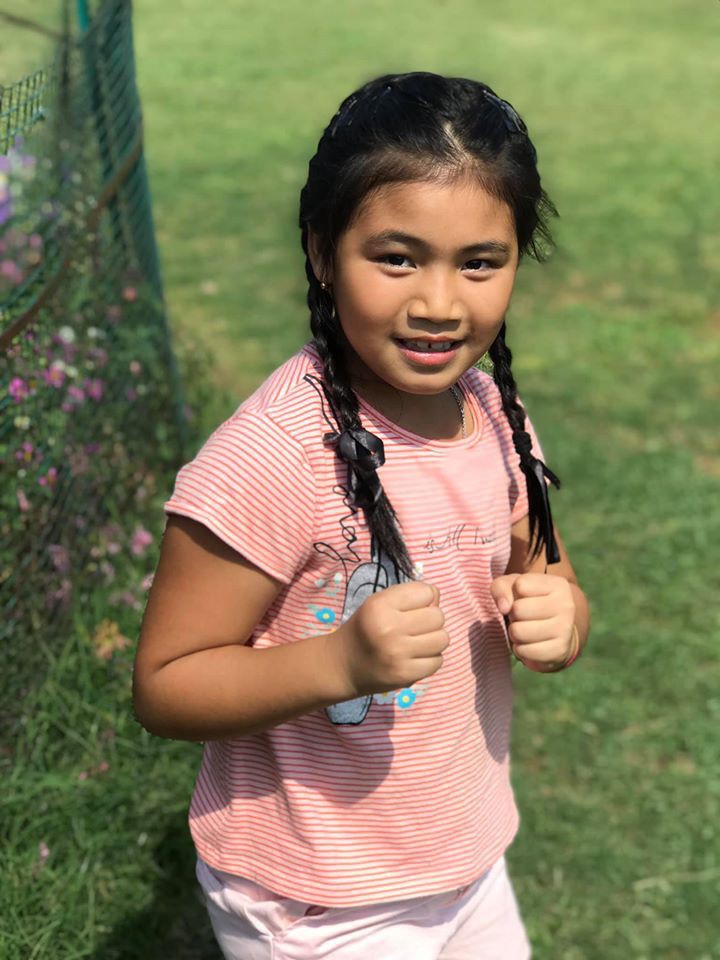
“Responsible consumption is important because we exert extreme stress on the planet and its resources.
Every living being relies on the planet for the basic needs of air, food, water and shelter. Lockdown has changed my family completely. Some of the members were non-vegetarian before but they have fully adapted to a vegan lifestyle. Now, we cook foods with minimum quantity and aim for zero food waste because we have limited food in stock. We’re also embracing re-use. I created a face shield by recycling plastic materials from scratch.
Going forward, we can continue limiting consumption by using Solar Power to generate our own electricity, heat and light. We should minimize travelling by plane and should use public transport, bikes and walking for nearby places. We can buy sustainable, eco-friendly materials and donate old clothing. And, we should continue avoiding food waste by shopping and cooking responsibly.”
Licypriya Devi Kangujam, from New Delhi, India, is one of the world’s youngest climate activists at just 8 years old. She is the founder of The Child Movement and speaks up for climate action and legislation to protect the environment in India and around the world. Follow @LicypriyaK on Twitter for more from Licypriya.
Consume responsibly
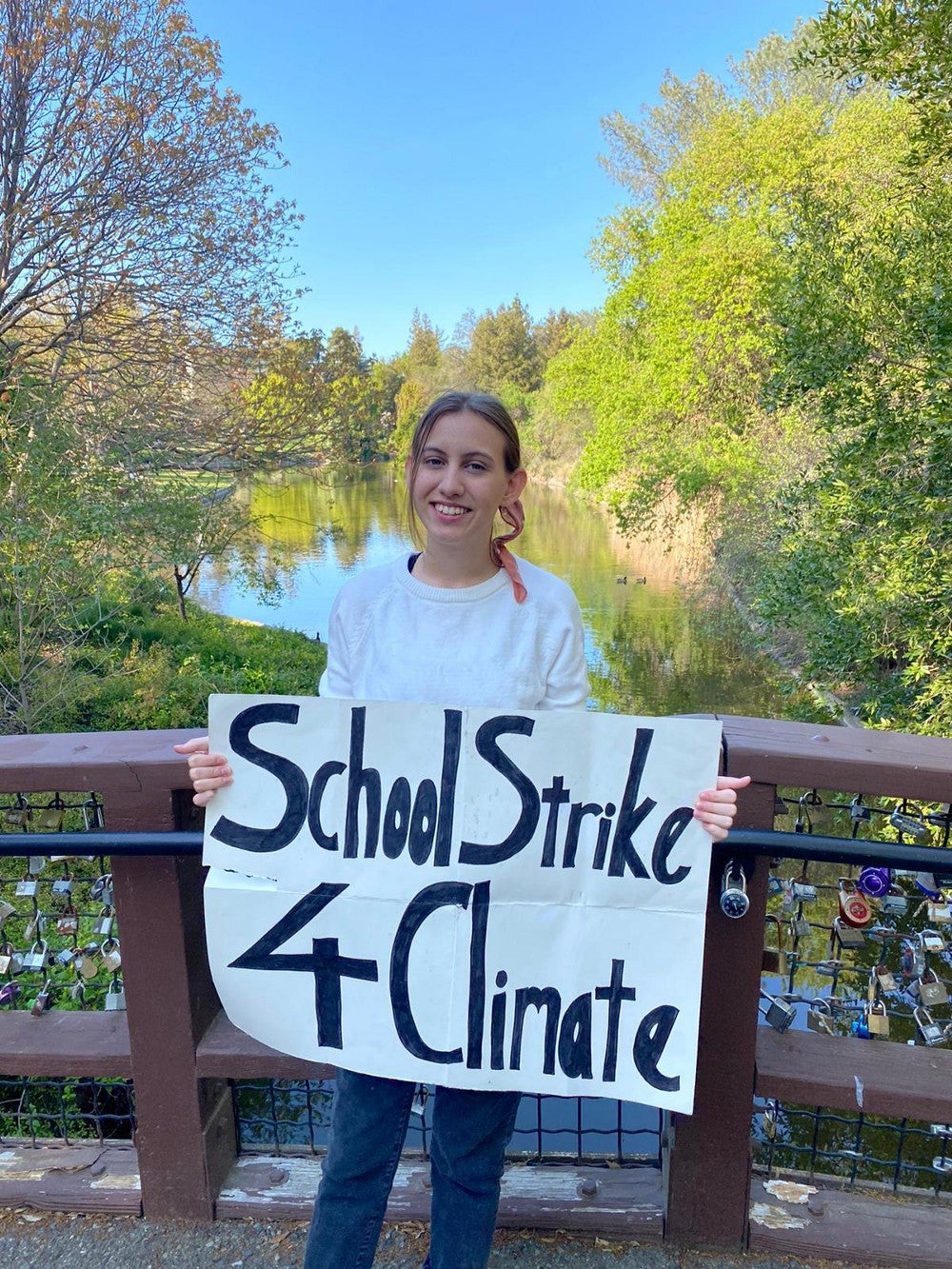
“While we’re sheltering at home, we should consuming less.
We can stop shopping or buy second hand. This is also a sharing economy now, where more people are sharing the items that they need, so fewer are made and bought.
And, we must push our government and business leaders to require products be manufactured in a sustainable way. Creating products into infinity, on a finite planet, is not possible.
While I have been sheltering-in-place, my consumption habits have of course changed, because I’m no longer traveling.
I’ve spent the past year and a half traveling to build my organization Earth Uprising, and it was exhausting and yes, there are emissions with travel.
I’m enjoying staying home right now and I actually don’t think I’ll go back to the travel schedule I had before.”
Alexandria Villaseñor, 14, is a climate activist living in New York who has participated in weekly school strikes for climate action since December 2018. Alexandria was a national and international Fridays for Future organizer for the first ever global youth climate strike in March 2019, and recently launched her own non-profit, Earth Uprising International, where she is working to bring accurate climate change education into schools and helping youth mobilize for direct action. For more from Alexandria follow @AlexandriaV2005 on Twitter.
Embrace the future of activism
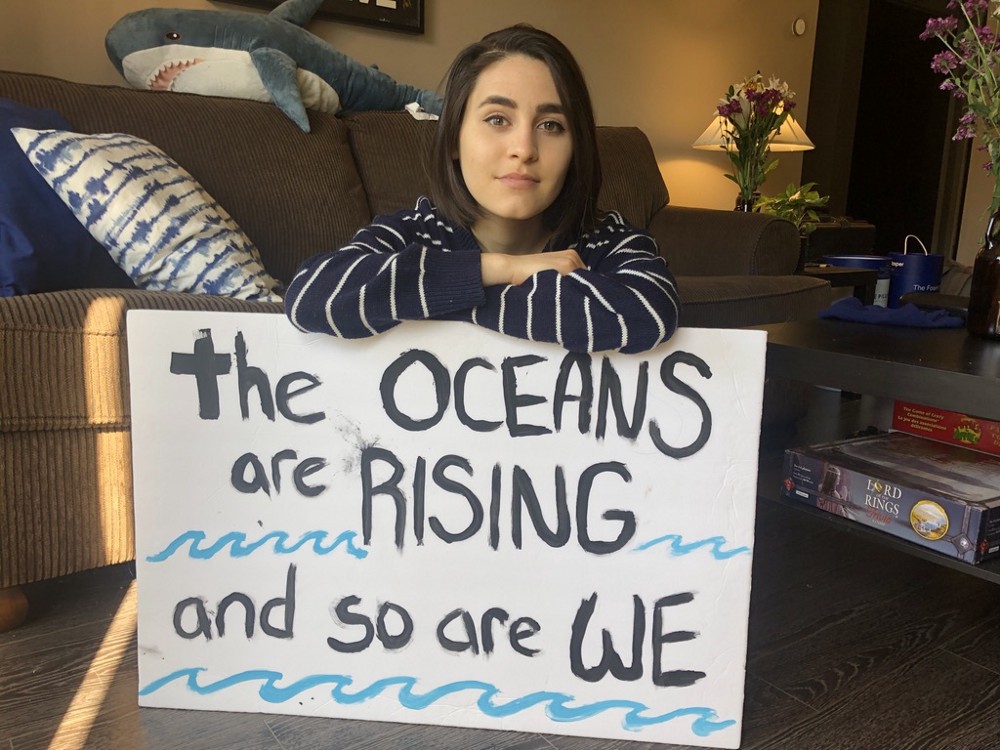
“Everyone talks about going back to normal after COVID-19, but normal was a crisis.
COVID-19 demands our immediate attention, but it does not reduce or reverse the climate and biodiversity crises.
COVID-19 has demonstrated that we have the capacity to rapidly respond to emergency and radically change systems: Canada, for example, is providing income assistance and subsidizing wages for small businesses. My hometown of Vancouver has made public transit free. These are all steps in the right direction, and now we know that we can do these things.
Many governments are developing stimulus packages to support our societies through the pandemic. This is a significant opportunity to change our systems, and emerge from COVID-19 as a stronger, more resilient, more caring society that is able to pursue ambitious and just climate action that puts front-line communities first.
We should continue to support and uplift front-line communities, place people before corporations… It is also important to profile our relationship to nature and bring attention to and the role of nature as part of the climate solution (and also as part of the solution for our health, livelihoods, and biodiversity!).”
Marina Melanidis, 24, is a climate actor and youth mobilizer from Canada. She is the Founder and Partnerships Director of Youth4Nature, a youth-led international organization that is mobilizing young people to advocate for and lead on nature-based solutions for climate change. See more from Marina on Twitter at @marinamelanidis and @Y4Nature
Recognize the links between COVID-19 and the climate crisis
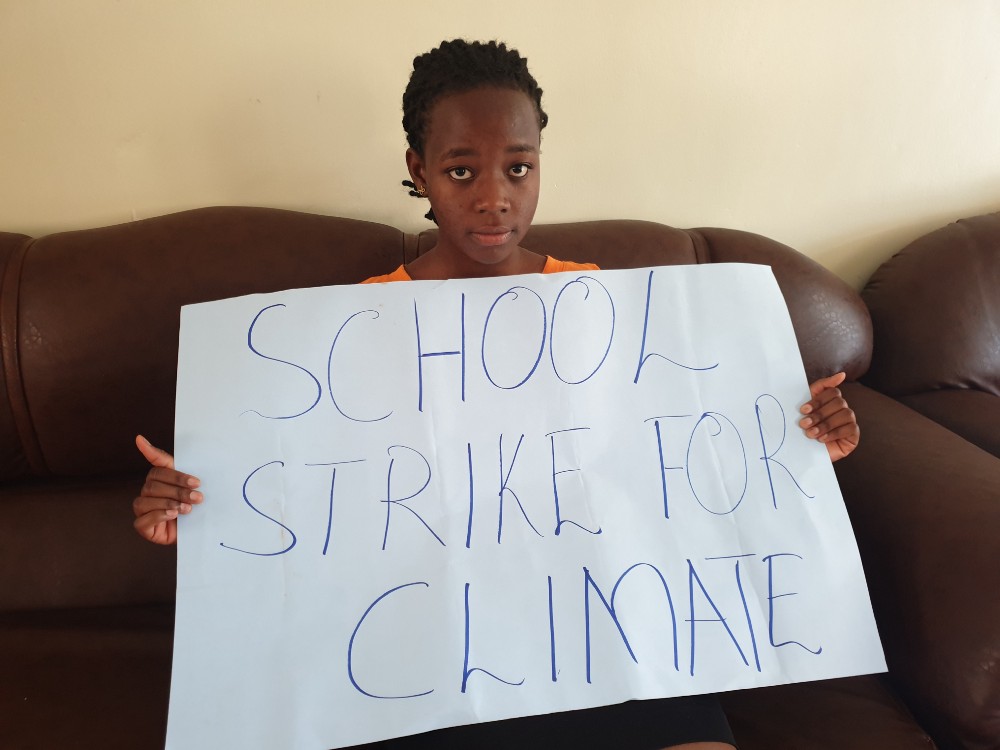
“This is the time for everyone to reflect on their contribution to our planet.
We should be asking ourselves tough questions. I think we should maintain the lifestyle we’ve adopted during COVID-19. It’s a clear signal that when we don’t take action, we risk millions of lives. It’s a reminder to treat all emergencies as emergencies. We need to listen and base [our actions] on science, not personal opinions.
Climate change is reducing crop production, causing hunger, starvation and malnutrition in children. The change in weather patterns has [sparked the rise of] diseases like malaria and cholera. Air pollution is also affecting human health. The urgency used to respond to COVID-19 should also be used in addressing climate change.
There’s danger in delaying climate action. We can promote climate action as individuals, groups, communities and as governments.
Climate action is everyone’s responsibility.”
Leah Namugerwa is a 15-year-old climate activist and Team Leader at Fridays for Future Uganda. Find Leah on Twitter at @NamugerwaLeah.
Learn from digital resources
While you’re at home, you can take advantage of all the available online resources, like courses, social media accounts and books and movies. We asked these activists for some recommendations on where to start learning more about climate change. Here are just a few of their suggestions, plus some from us too.
- Check out free YouTube channels like PBS Eons (about the history of life on Earth), Origin of Everything (about under told history and culture), and Journey to the Microcosmos (about microorganisms).
- SDG Academy provides Free educational resources from the world’s leading experts on sustainable development
- Participate in Fridays for Future #ClimateStrikeOnline every Friday and take part in a #Talkforfuture
- Check out webinars and resources from Stockholm Environmental Institute
- Follow @UNFCCC and @UNEP on Twitter, as well as all of the activists featured!
- Join the conversation for climate justice online and share UN Women’s Social Media Package for this #EarthDay.